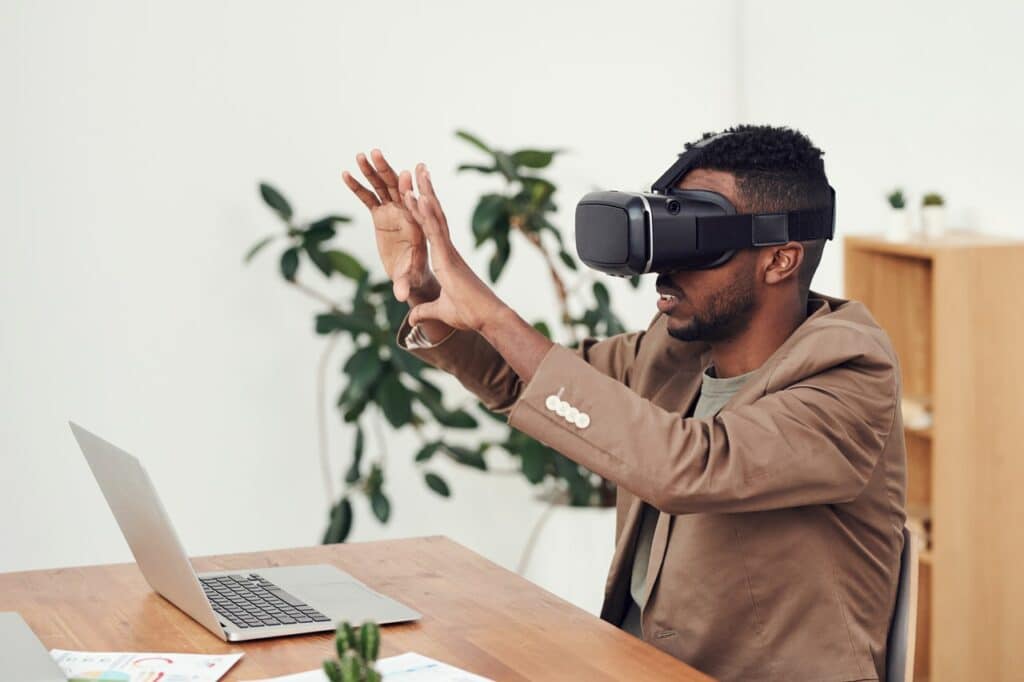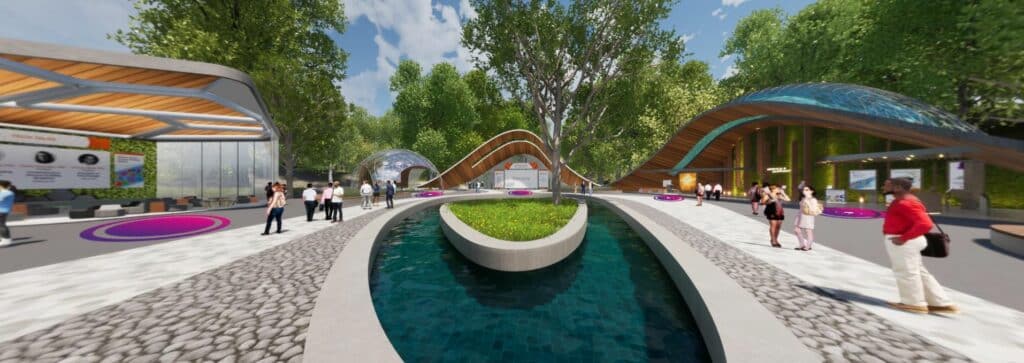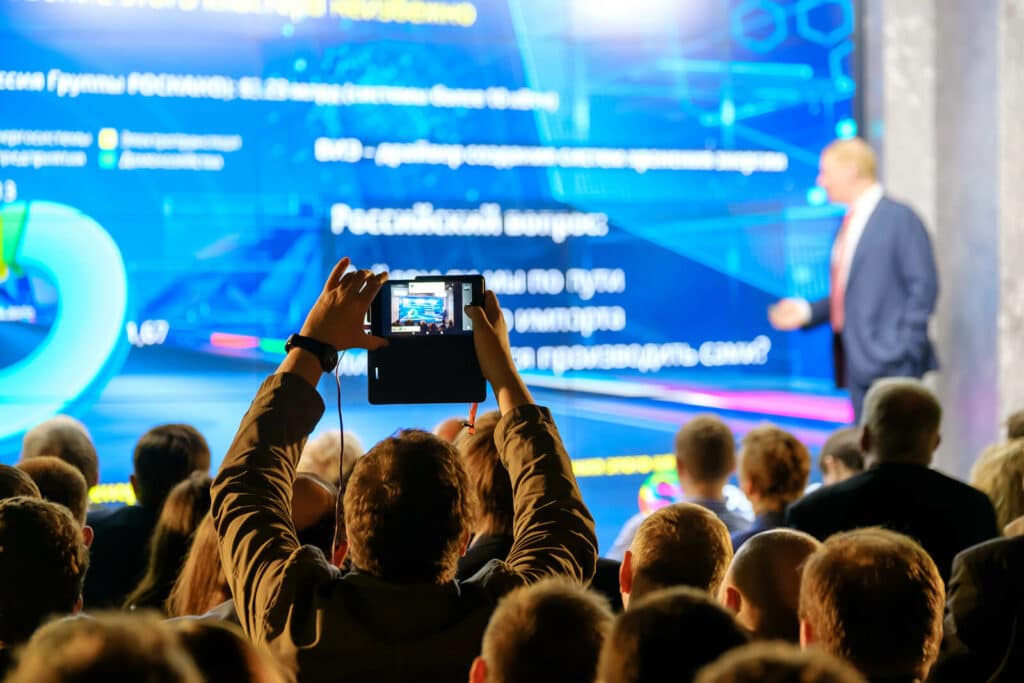Ever since Facebook rebranded itself to become Meta, the tech world has been buzzing about the metaverse. Although it’s not a new concept, the technology has just started to catch up with the idea. In fact, the concept of the metaverse has been around in one form or another for decades. However, event planners should take note of new trends in the metaverse. So, what does the metaverse mean for the future of events, and for event planning and production?
What Exactly Is the Metaverse?
Thinking about the metaverse can be overwhelming to event planners. After all, you might have just gotten used to the idea that virtual events and hybrid events are here to stay. Now, you’re being asked to embrace an entirely new concept. However, when you break it down, the metaverse is not so technical or outlandish.
The term “metaverse” was coined in the 1990s by a sci-fi writer named Neal Stephenson. He used it to refer to a computer-based simulated reality that existed alongside the real world. The concept isn’t really that far-fetched. Computer games that operate like alternate realities have been around for more than 20 years. The difference now, with the metaverse, is the deliberate blurring of the lines between the real world and the digital one.
Persistent, Immersive 3D Virtual Worlds
So, what is the metaverse? There are actually two different concepts that explain what the metaverse is all about. First, there’s the idea of persistent, immersive 3D worlds, or environments. Persistent means that the environment exists whether or not you, personally, are in it. Other people are still interacting with the metaverse, even when you’re not. In this context, the metaverse is a virtual place, or more accurately, a group or series of places. You might call it a virtual world. Some metaverse environments are accessed via virtual reality (VR) goggles or a VR headset. Others, like the XtendLive platform, you can access via your average computer or phone.

Virtual Reality and Augmented Reality Technology
The second concept relates to the kind of technology that’s used to create and access the metaverse. Metaverse environments are built and accessed using digital computer technology. Virtual reality (VR) and augmented reality (AR) technology can play a role too. However, the role for VR and AR is currently somewhat limited. For one thing, most people don’t have VR headsets or smart glasses yet. Also, not everyone enjoys the VR experience in its current form. For example, many people experience a form of motion sickness after spending time in a three-dimensional VR environment.
Currently, most metaverse environments can be found in the entertainment sphere. Most metaverse worlds do not require any special headsets or technology. Online games such as Fortnite and World of Warcraft are examples. Some metaverse environments, however, aren’t limited to the world of entertainment. In particular, there are some exciting professional applications, not the least of which is in the events industry.
What Can the Metaverse Bring to the Events Industry?
The events industry has changed rapidly in a short space of time, with the swift pivot from live to virtual and hybrid events. Many of these events can stand as proof that the metaverse has a place in the events industry. And, that events have a place in the metaverse.
As Bill Gates noted at the end of 2021, the metaverse has huge potential to revolutionize the world of work. In fact, the metaverse may transform the workplace even more than COVID already has. Gates predicts big changes in just the next two or three years, suggesting that virtual meetings might soon be taking place in the metaverse. At these virtual events, participants would be represented by digital avatars rather than flat 2D images. Instead of watching people talk on a screen, you might be sitting with others in a virtual meeting room. Some virtual and hybrid events are already taking this approach. There are already many such examples of successful virtual events.
Scalable
We’ve already seen many examples of 3-dimensional virtual events drawing huge crowds. The online game Fortnite has hosted numerous virtual concerts with over 10 million attendees each. And the digital games platform Roblox hosted a virtual concert, which had a total viewership of more than 33 million.
Most events, of course, are nowhere near this size. But the beauty of the metaverse is that it’s infinitely scalable, both up and down. There’s room for any event, of any size. You can host small in-house board meetings with half a dozen people, or corporate events with tens of thousands of attendees. You can even host those massive multi-million audience concerts. The metaverse offers unlimited space—for events, for audiences, for ideas.
Immersive
An event in the metaverse has the potential to be more immersive than any other virtual event format. This has already been demonstrated with the success of virtual events that make use of 3D digital environments. In these environments, attendees can be active event participants, rather than passive content consumers.
Engaging
With increased immersion, 3D events are much more engaging than conventional virtual events. Attendees have the opportunity to move through virtual spaces, interact with other event attendees, and ask questions during live virtual sessions. They may earn points along the way as part of the event’s gamification, or they might attend a virtual team building activity. That increased level of engagement means that event attendees are more open, more interested, and more receptive. This openness applies to both event content and marketing messages.
Event Production
In virtual events that center around traditional webinars, there really is no event production. However, in live events, event production can make or break an event or session by giving your attendees the perfect atmosphere for your message.
Event production is the creative and technological production of an event. It uses common theater techniques such as sound, setting, video, and design. When it comes together just right, you know it. The mood and the content flow seamlessly together.
Why lose that awe-inspiring element with virtual events? Metaverse events allow you to give your audience studio-level event production, so that they, too, feel truly a part of an immersive event.

Bridging the Gap Between Live and Virtual Events
The biggest advantage that the metaverse brings to the events industry is that it can help close the gap between live and virtual events. Or, in the case of hybrid events, it can bring together the experiences of the live component and the virtual component. “Virtual” is still just an option for most events, and not a requirement. But this state of affairs won’t last forever. Virtual events are evolving, and so is the events industry itself. It won’t be long before hybrid events are the industry norm, rather than live-only events. If you’re an event professional, that will mean an increasing emphasis on creating virtual event experiences that feel like in-person events.
There’s currently a big divide in terms of the kind of event experiences that people have at a live event, versus the kinds of experiences they can have at a virtual event. Hosting virtual events in metaverse environments can help bridge that gap. They make the digital event experience feel more like a live event.
More than a Buzzword, the Metaverse Is Part of the Future of Events
While it may take some time for the technology to catch up, it’s clear that 3D metaverse events are what the events industry is heading towards. The future of events will almost certainly involve the metaverse in some form, though we won’t know the full impact of metaverse events for a few years. That’s why, even if you don’t plan to open up a commercial space in the metaverse, you can host events on a metaverse events platform.








